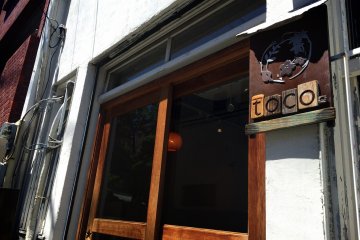If you’re looking for a historical treasure-trove of Japanese arts that will give you an overview of some of the most important and influential techniques, products and traditions to come out of Japan, Tokyo National Museum is the place for you.
The permanent collection, located in the Honkan (Japanese Gallery) is brought together under the title, Highlights of Japanese Art. The information tells visitors they are about to embark on a “cultural journey through time” and the gallery lives up to this claim. The earliest items in the collection are clay pots and jars from the Jomon Period (10,000-500 BC). From there you are taken on a whistlestop tour that ends up in the current Heisei Era, having touched on everything in between. There is plenty of English around on the labels in the galleries, as well as guides and maps in English, French, German, Spanish, Chinese and Korean so it’s easily navigable by foreign visitors.
Even in this collection of highlights there are some things that particularly stand out: the kimonos and lacquer-ware items show off the tremendous skill of the artists through their tiny and beautiful details; the samurai armour and swords are fascinating for their precision and the air of danger that hovers around them; the 1000-armed Buddhas are awe-inspiring in their craftsmanship and serenity.
In addition to the permanent displays in the Honkan, there is also a programme of small, thematic, temporary exhibitions. These showcase items belonging to a particular collector, or a collection that is relevant to a specific time of year (for example Hina Matsuri – Doll Festival – on 3rd March). Then there is the huge special exhibitions gallery, the Heiseikan, which houses a large archaeological collection, as well as being the location for the major temporary exhibitions that the museum hosts. Recent shows have looked at Buddhism, the relationship between Chinese and Japanese art, and manga, with forthcoming exhibitions scheduled to focus on calligraphy, Chinese dynasties, and sacred Japanese treasures.
Tokyo National Museum also includes the Hyokeikan and Toyokan buildings.
Spend some time just sitting in the galleries taking everything in. The low lighting and near silence create an atmosphere perfect for contemplation of the beautiful objects, many of which have been designated as National Treasures or Important Cultural Property. These artifacts are not just important to the cultural heritage of Japan, but to that of the whole world. A visit to Tokyo National Museum is an uplifting and inspiring reminder of the beautiful creations of which people are capable and it is well worth half a day of your time.















